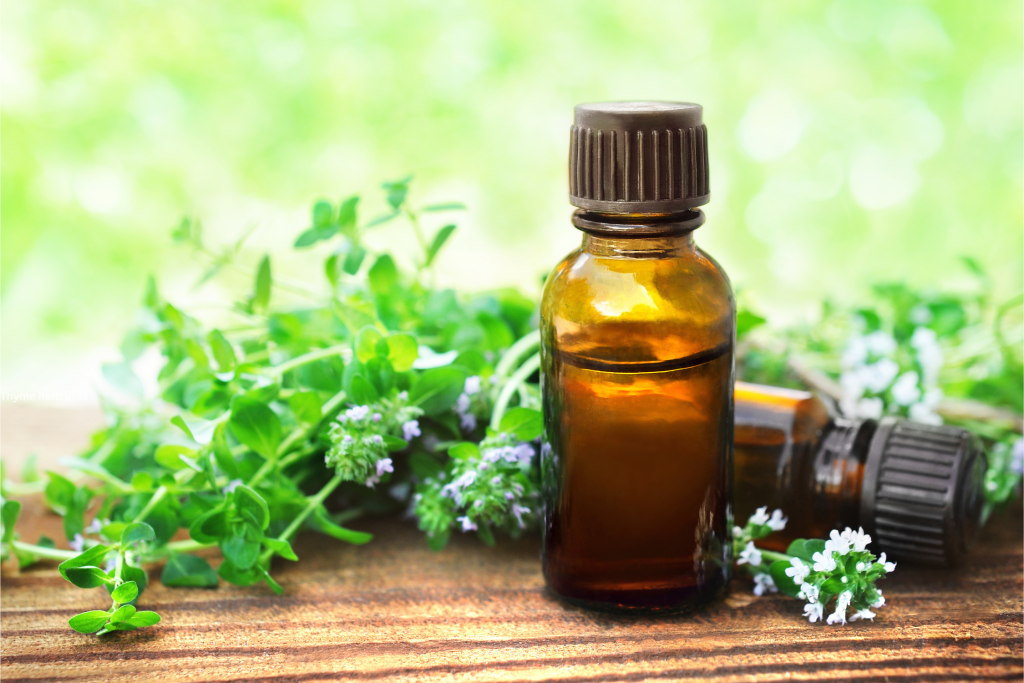
Thyme is an aromatic herb with a rich history of culinary, medicinal, and ornamental uses. Known for its distinctive flavor and potent health benefits, thyme has been a staple in kitchens and medicine cabinets for centuries. In this blog, we’ll explore the many benefits of thyme, its diverse uses, and the potential side effects you should be aware of.
Benefits of Thyme
- Rich in Nutrients: Thyme is packed with vitamins and minerals. It’s an excellent source of vitamin C, vitamin A, copper, fiber, iron, and manganese, contributing to overall health and well-being.
- Antioxidant Properties: Thyme contains thymol, an essential oil with strong antioxidant properties. Antioxidants help protect cells from damage caused by free radicals, reducing the risk of chronic diseases.
- Anti-inflammatory Effects: The compounds in thyme, including thymol and carvacrol, have anti-inflammatory properties, which can help reduce inflammation in the body and alleviate symptoms of inflammatory conditions.
- Antimicrobial Activity: Thyme has been shown to have antimicrobial properties, making it effective against various bacteria, fungi, and viruses. This makes it useful in treating infections and preserving food.
- Respiratory Health: Thyme has traditionally been used to treat respiratory conditions such as coughs, bronchitis, and asthma. Its antispasmodic and expectorant properties help clear mucus and relieve congestion.
- Digestive Health: Thyme can aid digestion by stimulating the production of digestive enzymes and increasing bile flow. It can also help alleviate gas, bloating, and other digestive discomforts.
- Boosts Immune System: The high levels of vitamins and antioxidants in thyme can help strengthen the immune system, making the body more resilient to infections and diseases.
Uses of Thyme
- Culinary Uses: Thyme is a versatile herb used in a wide range of dishes. Its earthy, slightly minty flavor enhances soups, stews, sauces, marinades, and roasted meats. It pairs well with other herbs like rosemary, oregano, and parsley.
- Herbal Tea: Thyme tea is a popular remedy for respiratory issues and digestive problems. Simply steep fresh or dried thyme leaves in hot water for a soothing and health-boosting beverage.
- Aromatherapy: Thyme essential oil is used in aromatherapy to promote relaxation, reduce stress, and improve mood. It can be diffused in the air or added to bathwater for a calming effect.
- Topical Applications: Thyme oil can be applied topically to treat skin conditions like acne, eczema, and fungal infections. It’s important to dilute the essential oil with a carrier oil before applying it to the skin.
- Natural Preservative: Thyme’s antimicrobial properties make it a natural preservative. It can be used to extend the shelf life of perishable foods and prevent spoilage.
Potential Side Effects of Thyme
- Allergic Reactions: Some individuals may experience allergic reactions to thyme, especially if they are allergic to other herbs in the Lamiaceae family, such as basil, oregano, or mint. Symptoms can include skin rashes, itching, and difficulty breathing.
- Gastrointestinal Issues: Ingesting large amounts of thyme can cause gastrointestinal discomfort, including nausea, vomiting, and diarrhea. It’s important to use thyme in moderation, especially when consuming it as an essential oil.
- Skin Irritation: Thyme essential oil can cause skin irritation if applied undiluted. Always dilute the essential oil with a carrier oil, such as coconut or olive oil, before topical use.
- Hormonal Effects: Thyme contains compounds that may have estrogen-like effects. While this can be beneficial for some hormonal imbalances, it’s advisable for people with hormone-sensitive conditions, such as breast cancer, to consult a healthcare provider before using thyme in medicinal quantities.
- Interaction with Medications: Thyme can interact with certain medications, including anticoagulants and antihypertensive drugs. If you are taking any medications, consult your healthcare provider before incorporating large amounts of thyme into your diet or using it as a supplement.
Conclusion
Thyme is a remarkable herb with a plethora of benefits and uses. Its rich nutrient profile, antioxidant properties, and antimicrobial effects make it a valuable addition to any kitchen or medicine cabinet. However, like any herb or supplement, it’s important to use thyme with awareness of its potential side effects and interactions with medications. Whether you’re adding it to your favorite recipes, sipping it as a tea, or using it in aromatherapy, thyme can be a powerful ally in promoting health and well-being.



